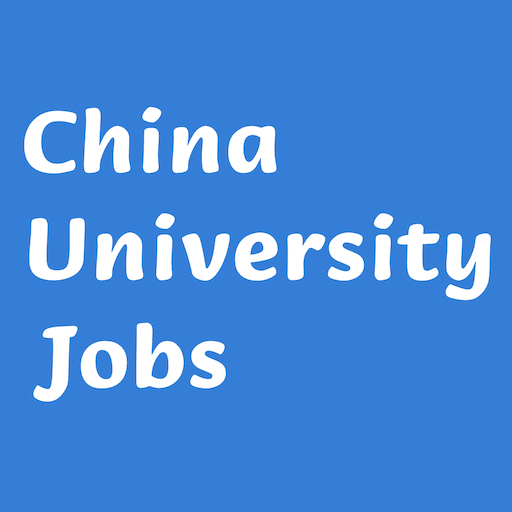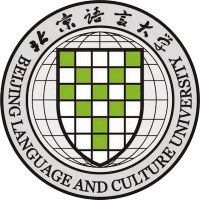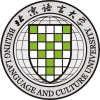About Beijing Language and Culture University
Beijing Language and Culture University (BLCU) was founded in 1962 under the personal care of Premier Zhou Enlai and was named Beijing Language and Culture College in June 1964, then inscribed by Chairman Mao Zedong in 1974.
BLCU is the only international university in China whose main mission is to educate international students in Chinese language and culture, and is known as the “Little United Nations”.
The university educates Chinese students in foreign languages, Chinese language, information science, economics, art, psychology, education, and linguistics, and also undertakes the task of training Chinese teachers and preparing students for study abroad. After more than 50 years of development, Beijng has developed into a multidisciplinary international university with the characteristics and advantages of language and culture education and language and culture research, and is the academic center of Chinese and foreign language and culture research and the cradle of training excellent talents in various fields. 2019, the university has clearly defined the goal of building a world-class language university with Chinese characteristics and the strategic plan of “three steps” in the new era. Three Steps” strategic plan.
History of Beijing Language and Culture
Beijing Language and Culture University (BLCU) has the longest history, the largest scale and the strongest faculty in Chinese language and culture education. To date, the university has trained nearly 220,000 foreign students who know Chinese language and culture for 184 countries and regions around the world. Many of these alumni have become prominent figures in academia, politics and business. The current President of Kazakhstan Kassem Tokaev, former President of Ethiopia Mulatu Teshome Votu, Chairman of the National Security Council of Kazakhstan Karim Masimov, Deputy Foreign Minister of Russia Igor -Morgulov, German sinologist Gu Bin, American physicist and Nobel laureate Eric Cornell, and other prominent figures have all studied at Beijng. In addition, Beilu has trained hundreds of thousands of outstanding talents for China, including a large number of students who received special foreign language training at the Training Department for Foreign Students, and who are now pillars of the country in various fields.
Since the 1990s, Beiyang has maintained its characteristics and advantages in the field of Chinese international education on the one hand, and actively developed related disciplines on the other, covering nine disciplines, including literature, economics, law, engineering, history, education, management, art and science. There are 2 postdoctoral stations, 2 first-level degree authorization points for doctoral degrees, 18 second-level degree authorization points for doctoral degrees, 6 first-level degree authorization points for master’s degrees, 3 second-level degree authorization points for master’s degrees and 5 professional degree fields. Among them, there are 1 national key discipline of the second level, 1 Beijing key discipline of the first level, 10 Beijing key disciplines of the second level, and 2 Beijing high precision disciplines. There are 39 undergraduate majors, including 10 national first-class undergraduate majors, 4 Beijing first-class undergraduate majors, 1 Beijing “key construction of first-class majors”, 7 national specialties and 4 Beijing specialties, as well as 1 “national university Huang Danian-style teacher team” and 2 national outstanding teachers. team”, 2 national excellent teaching teams and 4 municipal excellent teaching teams.
At present, the university has the following teaching and research units: the Department of Chinese International Education (including the School of Chinese Language, the School of Chinese Language and Culture, the School of Chinese Language and Culture, the School of Preparatory Education, the School of Chinese Language and Culture, and the Center for International Communication of Chinese Culture), the Department of Foreign Languages (including the School of English, the School of Advanced Translation, the School of Applied Foreign Languages, the School of Oriental Languages and Cultures, the School of Western Languages and Cultures, the School of Middle East, and the Institute of Country and Regional Studies), the Department of Humanities and Social Sciences (including the School of Chinese Language Education), and the Department of Chinese Language and Culture. (including the School of Chinese Language Education, the School of Humanities, the School of International Relations, the School of Journalism and Communication, and the Beijing Research Base of Language Documentation and Cultural Heritage); the School of Information Science (Institute of Language Intelligence), the School of Business, the School of Marxism, the School of Arts, the School of Language Rehabilitation (Institute of Language Pathology and Brain Science), the Department of Linguistics, the School of Psychology, the School of Training, the School of Online Education, the School of Physical Education, the School of International Studies, and the School of Chinese Language and Culture. Department of Teaching and Learning, College of International Studies; Institute of Chinese Language International Education (Research Base for International Chinese Language Teaching), Academy of Linguistic Sciences, Institute of Chinese Culture (Mei Lanfang Art Transmission and Dissemination Center), Center for Advanced Innovation in Language Resources (Secretariat for the Preparation of the National Emergency Language Service Corps), Institute of International Student Education Policy and Evaluation, Institute of Economic Research, Institute for the International Dissemination of Chinese Calligraphy, Discipline of Language Cognitive Science The Center for International Exchange of Chinese Industrial Culture (co-located with the Institute of Country and Regional Studies), the Institute of Belt and Road Studies, the Secretariat of the Office of Translation of Asian Classics (affiliated with the Institute of Belt and Road Studies), the Institute of Lu Xun and World Culture (affiliated with the Institute of Belt and Road Studies), and the Institute of Chinese Language Education (affiliated with the Institute of Chinese Language International Education).
At present, the university has 14 research centers (or bases) at the provincial and ministerial levels, including the Institute of Chinese Language and International Education, which is one of the 100 key research bases in the humanities and social sciences of the Ministry of Education, the Center for Arabian Studies, which is a key cultivation base for country and regional studies of the Ministry of Education, and the Innovation and Introduction of Wisdom Base in Language and Cognitive Science, which is supported by the Ministry of Education and the Ministry of Science and Technology and has language and cognitive science as its disciplinary innovation point. “The National Center for Language Resources Monitoring and Research (NCLR) is an important base for language resources monitoring of the State Language Commission (SLC), the Chinese Language Standards Research Center (CLRC) is a position of the SLC to develop and revise language standards, the Chinese Language Resources Protection Research Center (CLRPRC) is a professional institution of the SLC to implement the national project of language resources protection. The International Chinese Language Teaching Research Base is one of the first ten research bases for the international promotion of Chinese language established by the State Hanban, the Research Center for the Translation and Dissemination of Chinese Culture to Foreign Countries is a platform for cooperation in the translation of Chinese and foreign cultures invested by the Ministry of Culture and Tourism, the Capital International Cultural Research Base and the Beijing Research Base for Documentary Language and Cultural Heritage are key research bases in Beijing’s philosophy and social sciences, and the Language The Center for Highly Accurate Innovation in Resources is the only language center among the “Highly Accurate Innovation Centers of Beijing Higher Education Institutions” built by the Beijing Municipal Education Commission, the Research Center for the Application of Chinese Ethnic Languages is a research institution for the application of ethnic languages and scripts established with the support of the National People’s Committee, the Base for International Education and Cultural Communication of Chinese Medicine is a special base relying on the State Administration of Traditional Chinese Medicine. established as a special base, and the Bright Literature Heritage Research Institute is a research institution jointly established with the Bright Daily. In addition to the provincial and ministerial research centers (or bases), our university has 16 centers of record for country and regional studies by the Ministry of Education, such as the Center for Latin American Studies, one research center established by the Beijing Language Commission (Beijing Language Rehabilitation Education Research Center), and more than 50 research institutions at the university level.
International
With the expansion of China’s foreign exchanges and cooperation, the school has increasingly extensive and close ties with the world. At present, it has established cooperative and exchange relations with 386 universities and educational institutions in 75 countries and regions in the world, forming an all-round, multi-disciplinary, deep and fruitful international education pattern. The university has established the Harvard Beijing School in cooperation with Harvard University, the Bangkok College in Thailand and the Tokyo Campus in Japan. The university has carried out more than 100 Sino-foreign joint education programs in various forms, such as the dual-degree joint training programs with the University of Manchester in England and Kansai University of Foreign Studies in Japan, student exchange programs with the University of Bonn in Germany and the University of Barcelona in Spain, and short-term programs with Sungkyunkwan University in Korea, the University of California at Berkeley, and the University of Sydney in Australia. The university has hosted 18 Confucius Institutes and 2 Confucius Classrooms, and has been awarded as an “Advanced Chinese Partner Institution”. In recent years, on average, about 100 teachers teach overseas each year, more than 400 students go abroad for exchange studies, and more than 1,500 foreign guests are received each year.
Academic
The university edits and publishes nearly 20 journals, including Chinese Language Journal, Language Teaching and Research, World Chinese Language Teaching, Chinese Cultural Studies, Sinology Studies, Literature Linguistics, Country and Regional Studies, and International Research on Chinese Language Teaching.
The various teaching materials published by the university’s publishing house have had a wide impact at home and abroad, and nearly 100 institutions and training institutes in various countries use the teaching materials published by BLCU for Chinese as a foreign language.




